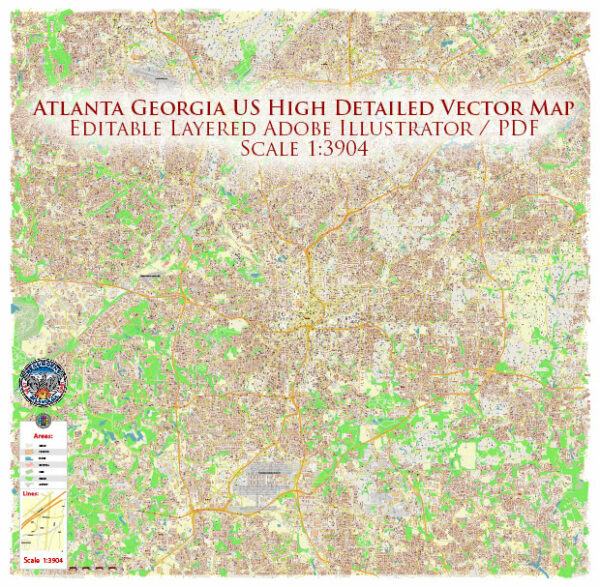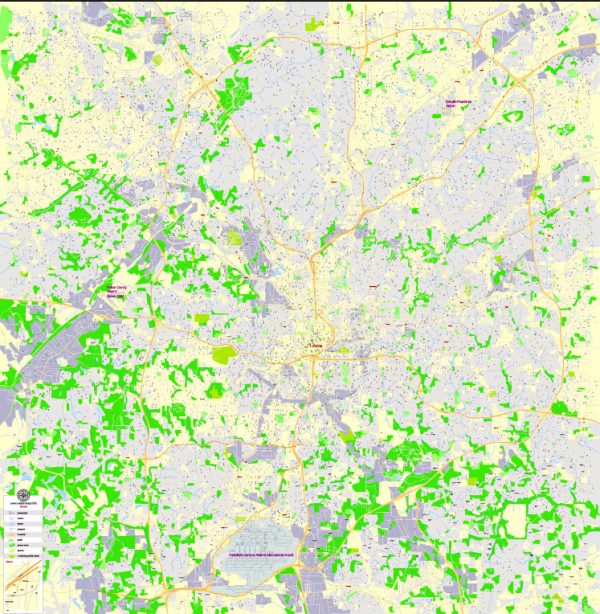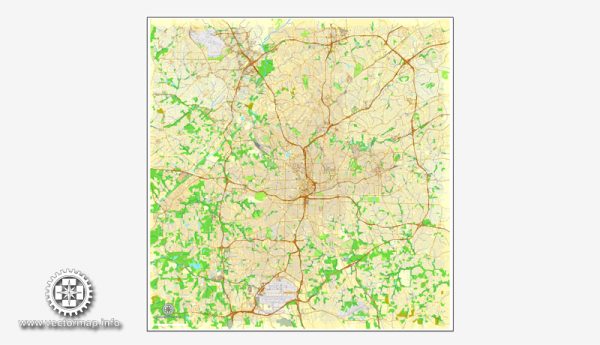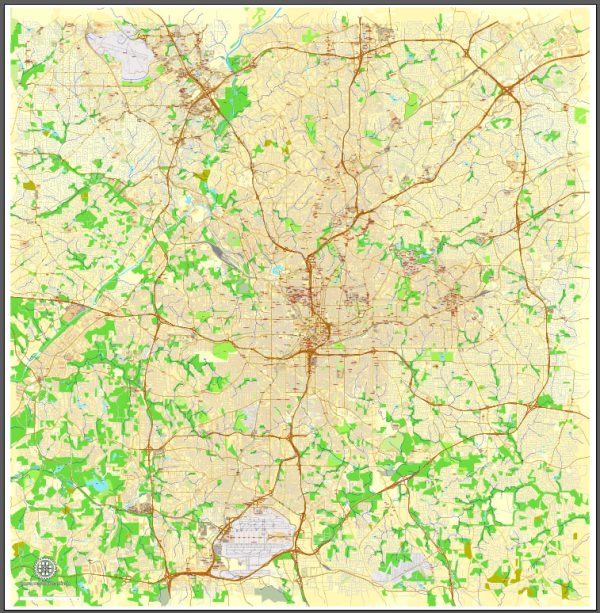The history of urban development in Atlanta, Georgia, is a fascinating story of growth, transformation, and challenges. Atlanta’s urban development has been shaped by a variety of factors, including transportation, economic opportunities, racial dynamics, and social and political changes. Here is an overview of Atlanta’s urban development history:
- Early Settlement and Railroad Hub: Atlanta’s origins date back to 1837 when it was founded as Terminus, a transportation center for multiple railroads. Its strategic location as a hub for multiple rail lines made it a prime site for economic development.
- Civil War and Reconstruction: During the American Civil War, Atlanta played a significant role as a major Confederate city and saw significant destruction during General William T. Sherman’s March to the Sea in 1864. The city’s post-war reconstruction marked the beginning of its urban development.
- Growth as a Southern Metropolis: In the late 19th and early 20th centuries, Atlanta grew rapidly, fueled by its transportation infrastructure and expanding manufacturing and commerce sectors. It became known as the “Gate City of the South” and attracted a diverse population.
- Racial Tensions and Civil Rights Movement: The 20th century was marked by racial tensions, segregation, and the struggle for civil rights. Atlanta played a central role in the civil rights movement, with leaders like Martin Luther King Jr. and organizations like the Southern Christian Leadership Conference headquartered in the city.
- Suburbanization and Urban Sprawl: In the mid-20th century, Atlanta experienced significant suburbanization and urban sprawl, which led to the expansion of the city’s metropolitan area. The development of highways, like the Interstate 285 “Perimeter,” facilitated this growth.
- Hartsfield-Jackson Atlanta International Airport: The construction of Hartsfield-Jackson Atlanta International Airport, one of the world’s busiest airports, in the 1950s was a major catalyst for Atlanta’s economic growth and development.
- Olympic Legacy: Atlanta hosted the 1996 Summer Olympics, which led to the development of Centennial Olympic Park and significant infrastructure improvements in the city.
- Downtown Revitalization: In recent decades, there has been a renewed focus on revitalizing downtown Atlanta, with initiatives to improve public spaces, attract businesses, and promote residential living in the city center.
- BeltLine Project: The Atlanta BeltLine is a transformative urban redevelopment project that aims to create a network of parks, trails, and transit around the city on former railroad corridors. It has become a symbol of efforts to improve the city’s urban environment.
- Challenges and Inequities: Despite its growth, Atlanta faces challenges related to income inequality, gentrification, and disparities in access to education and economic opportunities, particularly along racial and economic lines.
- Economic and Cultural Hub: Atlanta has grown to become a major economic and cultural hub in the Southeast, with a diverse population and a thriving arts scene. It is known for its universities, healthcare institutions, and a burgeoning tech sector.
- Green Initiatives: Atlanta has also taken steps to become more environmentally sustainable with initiatives to increase green spaces, reduce emissions, and promote public transportation.
The history of urban development in Atlanta reflects the broader narrative of the American South, with its complex history of race relations, economic development, and cultural change. It has evolved from a transportation hub into a dynamic and diverse metropolis with a rich and multifaceted urban history.






 Author: Kirill Shrayber, Ph.D. FRGS
Author: Kirill Shrayber, Ph.D. FRGS